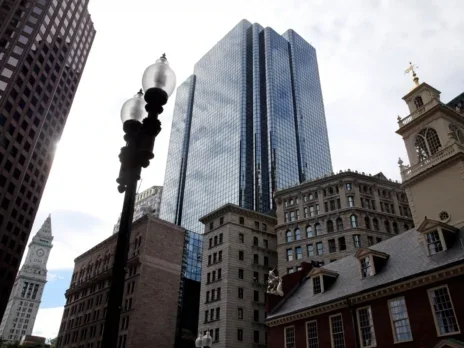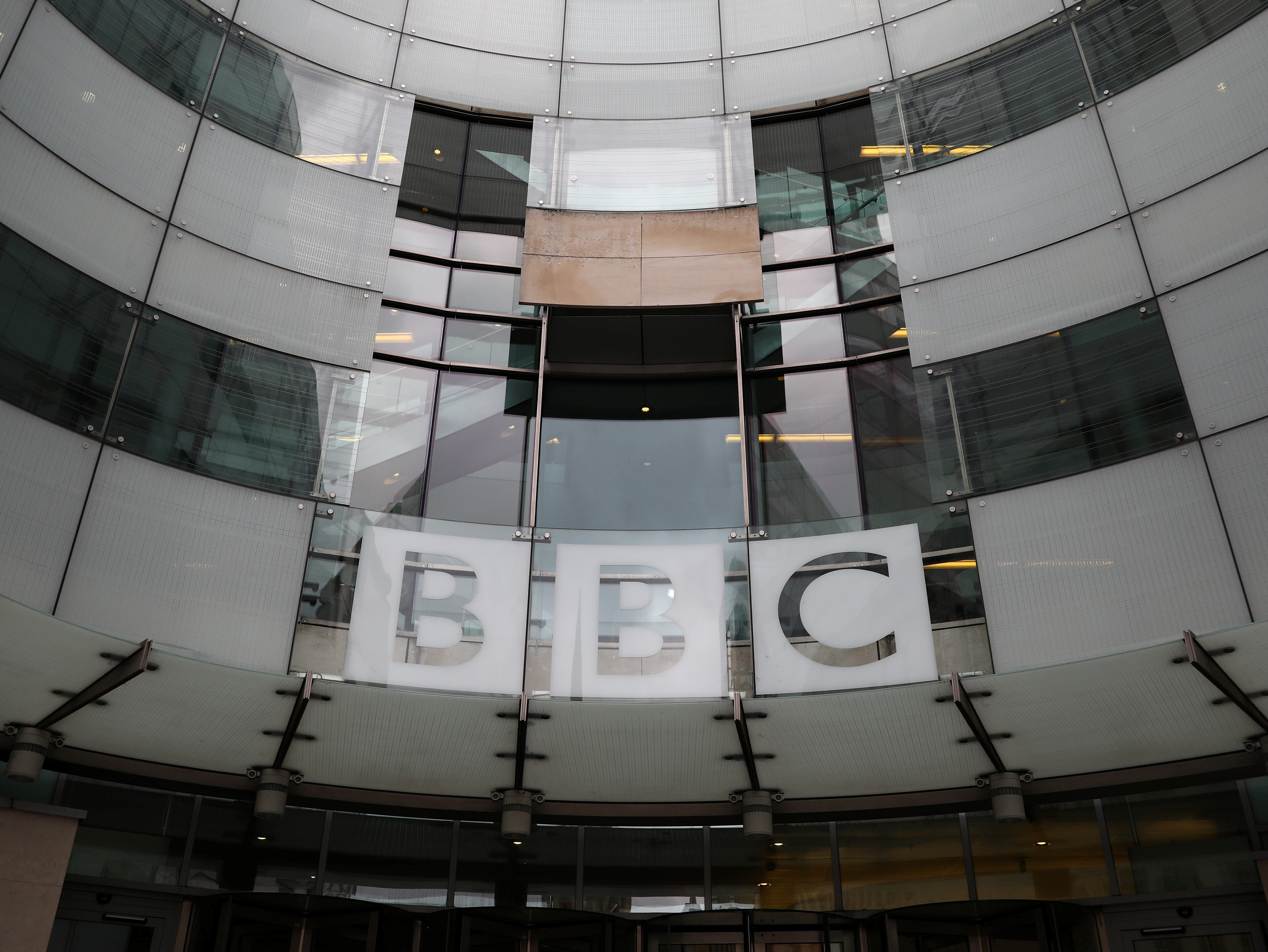BBC News to close Hardtalk, Click and Asian Network news service in latest round of 185 job cuts

The BBC plans to make a net reduction of 130 roles in its news and current affairs department, ending interview programme Hardtalk, tech show Click and the Asian Network’s bespoke news service as part of a £24m cost-cutting drive.
The closures are part of a broader BBC plan to cut 500 jobs across the corporation by March 2026 in order to create a total of £700m in annual savings relative to 2022.
The proposals would see 185 roles closed in total in BBC news and current affairs teams, with 55 new roles opened.
A further 25 post closures are proposed in the media operations team which supports the production of the BBC’s news, radio and some sport services.
BBC News chief executive Deborah Turness told staff of the changes in an email on Tuesday, saying the corporation proposed savings equivalent to 4% of the current budget.
“We have worked hard to find savings that don’t require us to close roles,” she said. “In fact, more than 40% of these savings will come from non-staff measures including reductions to spend on contracts, suppliers, distribution and physical buildings.
“But with staff costs accounting for 75% of our overall budget, I’m sorry to say that post closures are unavoidable.”
Hardtalk currently airs nightly Monday to Thursday on the BBC News Channel and has a podcast. It had been described as the “flagship” current affairs interview programme for BBC World News (one of the two previous TV channels that merged into the current BBC News Channel last year).
Turness wrote that Hardtalk will be closed “as we focus on continuous live and breaking output on our News Channel, and do more to use and promote the high impact interviews and important conversations that are happening every day across our platforms”.
Hardtalk presenter Stephen Sackur posted on X that the closure was “depressing news for the BBC”.
“A brilliant team of producers and researchers is being disbanded just as BBC DG Tim Davie is trying to persuade the British Government that the journalism of the BBC World Service is such a vital expression of democratic soft power that the taxpayer must fund it. Whatever the outcome o f that, it seems it will be too late to save Hardtalk – for so long a pillar of the World Service schedule.”
BBC Click is described as “the BBC’s flagship technology programme” and airs on the BBC News Channel (formerly BBC World News).
Co-presenter Lara Lewington said on X: “The BBC gave us an amazing opportunity to cover the tech that has, and will transform our lives, in ways we could never have imagined. It is a shame to see our dear show come to an end at this moment of AI transformation and incredible acceleration in innovation and possibility, but such are the economic constraints.”
The BBC says that Click is being “relaunched and renamed” to Tech Now rather than closed fully, “shifting from its traditional TV format to one where the films work best for digital”.
Also under the proposals, domestic BBC radio stations would begin airing World Service summaries between midnight and 5.30am rather than their own domestic summaries and the 5.30am News Briefing on Radio 4 would cease.
The cuts announced on Tuesday do not impact the World Service, which Turness said was because “we are in discussion with the government about its current funding levels.
“When those discussions are concluded we will be able to shape plans for the future and share them.”
Director-general Tim Davie has this week been vocal about the effect funding cuts are having on the World Service, saying they are opening the way to the growth of state news outlets from the likes of Russia and China: “Perhaps most worrying from the BBC point of view is that we can now see clear evidence of the fact that, when the World Service retreats, state-funded media operators move in to take advantage.”
Details of closures and changes at BBC News
The Asian Network’s news service includes programmes such as The Ankur Desai show, 60 Minutes and Asian Network News Presents, all of which will be closed along with 18 associated posts. The station will instead begin airing Newsbeat bulletins which are also used on Radio 1 and 1Xtra.
BBC 5 Live will no longer produce its own overnight news programme, which will instead be handled by the BBC’s nations and local teams, resulting in the closure of eight posts.
The proposals also include the merging of four “On The Day” newsdesk divisions, Home, Foreign, Content and Live, to create “a single, story-led structure”.
Turness wrote the goal of the change was to “manage demand, reduce duplication and prioritise live, digital and high impact journalism”.
Davie has previously instructed BBC News to reduce overall output by 20%.
The BBC said it will increase the number of digital roles in time zones outside the UK, “closing some roles in London and opening new positions in Sydney” as part of a “follow the sun” digital strategy that will allow it to better operate around the clock.
Turness told staff: “We are doing everything we can do avoid compulsory redundancies. Earlier in the summer we launched a Voluntary Redundancy (VR) scheme. Many of the roles proposed for closure in News align with expressions of interest in VR, and there are also expressions of interest in other roles where there might be opportunities for redeployment. Anyone potentially impacted by today’s announcements will be able to register for VR on the same terms.”
The cuts were first indicated in July as part of the BBC’s annual report for the year to the end of March 2024 which attributed the budget squeeze in large part to a freeze on the licence fee that meant it is now £1bn worse off a year than it was in 2010/11.
NUJ decries new BBC cuts as ‘an assault on journalism’
Last month the BBC has announced plans to cut up to 115 editorial and production jobs in the nations and regions, which themselves followed cuts to BBC local radio and output such as Newsnight.
Outgoing NUJ general secretary Michelle Stanistreet said the new cuts “represent a damaging assault on journalism and news at a time when the UK needs greater plurality and diversity of news and trust in journalism is under attack at home and abroad.
“Some of these decisions represent comparatively modest savings yet will disproportionately undermine the breadth and range of news content the BBC currently provides.”
Laura Davison, the union’s broadcasting organiser and incoming secretary general, added: “It is unclear how much journalism at the BBC can withstand without decisive action and investment that recognises the immense benefit of independent, credible news and current affairs programming. The inevitable loss of talent will serve as a double whammy to the organisation, where under-resourced teams must now strive to ensure the sustainability of journalism valued by the public.
“As we unpack detail of proposals, we will bring together NUJ reps to consider next steps alongside the scale and impact of these damaging plans.”
Email pged@pressgazette.co.uk to point out mistakes, provide story tips or send in a letter for publication on our “Letters Page” blog
Related
Llyods Recruiting Engineers In India After Slashing Jobs In UK
Lloyds Banking Group is planning to hire hundreds of engineers in India as the company plans to shift its employment opportunit
Major new funding for music acts that supercharged careers of…
£1.6m Music Export Growth Scheme to support 58 independent UK artists to tour the world Funding will boost UK’s creative industries – a key growth se
Well-loved restaurant chain to close 8 venues across UK as…
A BELOVED restaurant chain has announced it will close eight venues across the UK, scrapping 158 jobs in the process.Owners are pointing the finger at Labour's
US adds 151,000 jobs in February as unemployment rate ticks…
The latest figures published by the US Bureau of Labor Statistics today (7 March) came in below market expectations, with economists polled by














